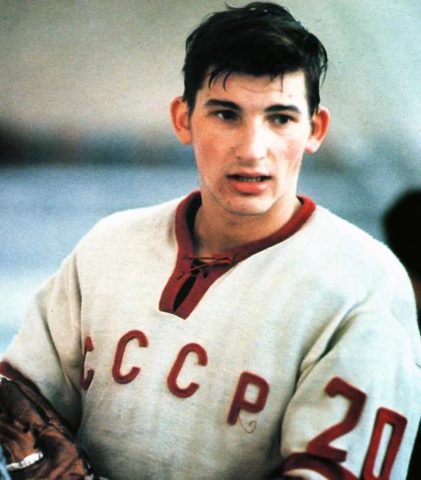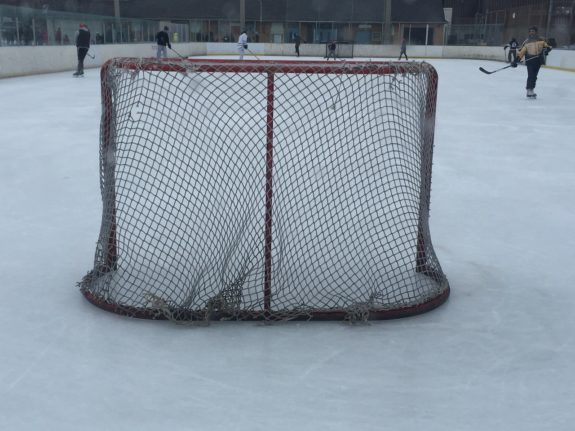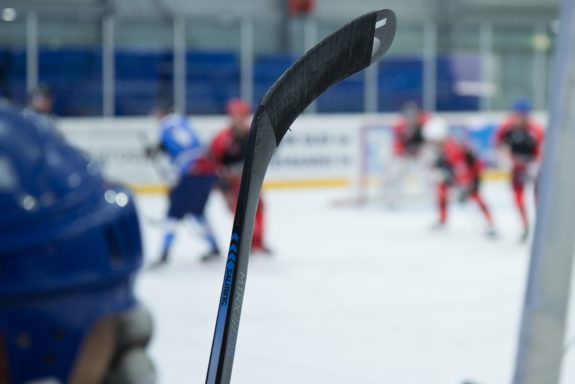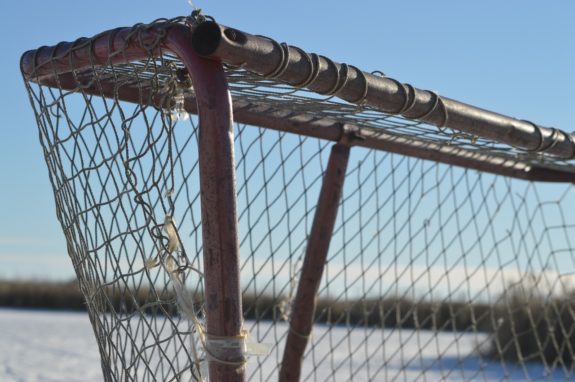I play recreation league hockey two times a week. Three if I am lucky. For a while last year I got up to four games a week, but my body and my wife protested. A healthy addiction is one thing. An insistent infatuation is quite another.
Last year, over 250,000 adult hockey players were registered in North America. At least some of them have to be worse than me. Let’s be clear: I am not what you would call a skill player. I have decent hockey sense and a reasonably accurate snapshot. I am not a great skater though and I still struggle to do what I know I am supposed to do in my own end. Luckily, the guys and gals I play with are not much better. Ideally, I play with people at or slightly below my own skill level. I like to score and I refuse to believe my glory days are done.
Fedorov or Tretiak?
Unlike most Canadians, I did not grow up playing hockey. My dad, from South Africa, was more comfortable coaching soccer and rugby. When I was 13, I read Wayne Gretzky’s autobiography cover to cover. I attended Sergei Fedorov’s hockey school the next summer. I am told Sidney Crosby now runs a summer hockey school in the same rink. Fair enough. Cole Harbour is his hometown, after all. If Fedorov ever made it to the hockey camp, I never saw him. I did meet Vladislav Tretiak though. Believe it or not, at that time and given my age, that seemed like quite a disappointment.

I came to camp having skated once or twice in my life. After a week of five hours a day on the ice, I could at least get around. I had one move – a painfully slow forehand-to-backhand deke that could fool no one, anywhere, ever. On the last day of camp, campers took turns facing off against Tretiak in goal. Despite my obvious lack of skill, Tretiak likely didn’t try as hard as he could have. In my first penalty shot ever, I scored against one of the greatest goaltenders in the world. He was the first to show me grace on the ice.
In high school, I joined a house league near Canning, Nova Scotia. For a few years, I did the hockey travel thing. We entered tournaments and won some but mostly lost. I saw the best and the worst of my teammates and was introduced to the vagaries of the dressing room. My first hockey fight was against a teammate. He was a bully who pushed too hard one day and got what he deserved. It was effective, but not very graceful.
Back to the Rink
I returned to hockey more than 20 years later when my family and I moved back east. In Vermont, you adopt a winter sport or you go nuts. The opportunity to play every week all year-round was enough for me to re-equip myself and start skating again. Older, heavier, and only a bit wiser, I enjoyed being a student of the game again. Crossovers came back slowly. Wrist shots, snapshots, and the occasional slapper came back a bit faster.
Skating remains an elusive skill. I envy those who can travel around the ice effortlessly. My kids may never love hockey the way I do. They may never choose to play for travel teams or in high school. But mark my words, those kids will be given every opportunity to skate.
I love the smell of the rink, especially in the early morning. It is fresh and musty at the same time. The cold hits your nose first and then the rubber flooring mixes with the scent of fresh-laundered uniforms, sweat, and Icy Hot. It smells like effort. Usually, you can’t smell the beer from the night before.

I also love the rituals. Greeting those who arrive early to the rink, filling my water bottle, putting my gear on – socks, shin pads, pants, skates, elbow pads, and finally jersey. Gloves and helmet go last. Some still use shoulder pads, but I don’t. They make me even slower on the ice than I all ready am. Some nights there is a stick to be taped, or a helmet screw to be tightened. Sometimes someone needs to borrow a jersey.
Finding the Right Mix
When I returned to hockey, I joined any group that would have me. Over the course of a couple of years, I began to realize the skill level of the group was only one factor. While playing with folks far less skilled than you is not much fun, there are worse fates.
I find that if you don’t like the folks you are playing with problems often come up. It becomes more difficult in these situations to shrug the inevitable contact that happens on the ice, even in avowed non-contact leagues. You are less likely to bring a case of beer or take an offered can after the game. When I am skating with a new group, if there are more than three players I don’t get a good vibe from, I usually don’t go back. I can handle a few jerks. Too many can ruin a good game. They have no grace on the ice.

The best groups are those who combine decent skill with a good attitude. I like it when older skaters and younger ones play together. Most of my leagues are co-ed. It is refreshing to see a decent middle-aged player get schooled by a young woman from a local college. When you have grace, your ego doesn’t get in the way. There is always the next shift or the next game. Sometimes our regular players bring their 15-year-old kids or members of their family to the rink to play. Watching them skate together is something special. I cannot wait until my kids are old enough to play alongside me in some of these games. I don’t care how bad they make me look.
Grace in Rec League Hockey
Grace is often defined in religious terms. It is also a disposition, an act, or an instance of kindness or courtesy. Grace is showing decency and embracing humility. Grace in recreation league hockey is passing the puck to whoever is open, not the best player on the ice. It is pulling up when a less experienced skater finds an open lane. Grace is when you praise whoever set you up after scoring a great goal. It is offering to switch with someone stuck on D after you score a few yourself. Grace is asking if someone is OK when they go down and apologizing immediately and unequivocally if it was you that did it. Grace is accepting the apology and moving on.
I have seen younger, lower-skilled players demonstrate grace beyond their years. I have seen older, high-skill players show none. Maybe we can’t always be graceful in our lives or on the ice. But, we can try.

CCO – Creative Commons